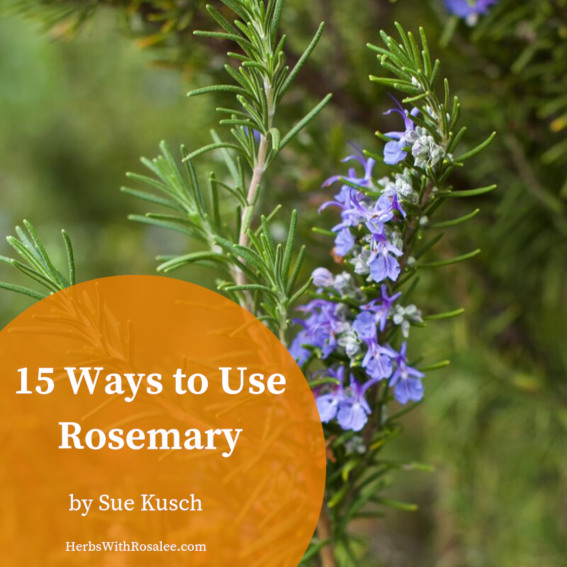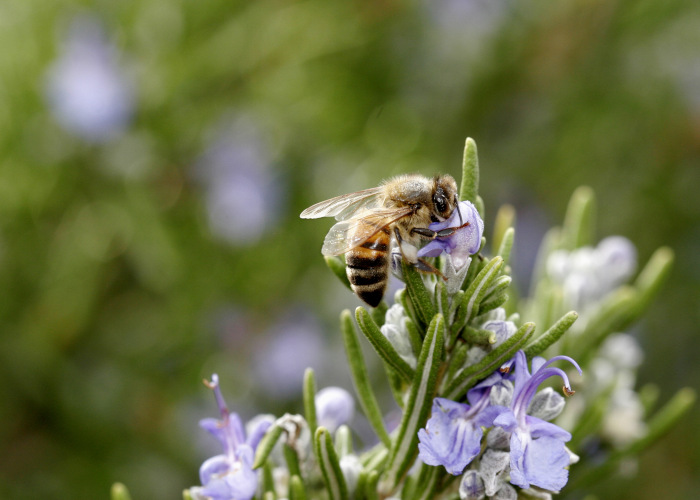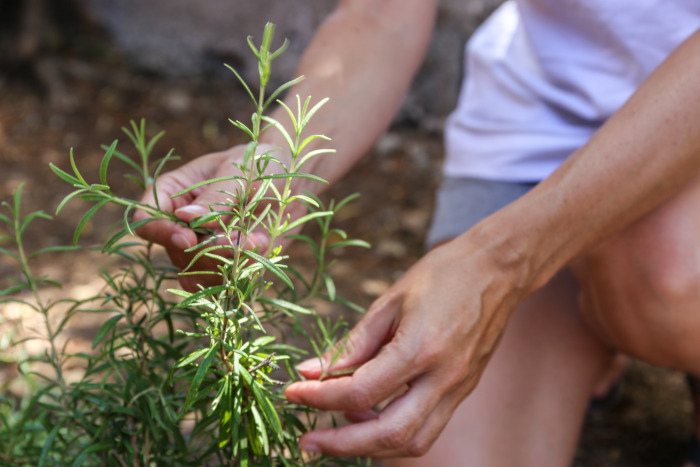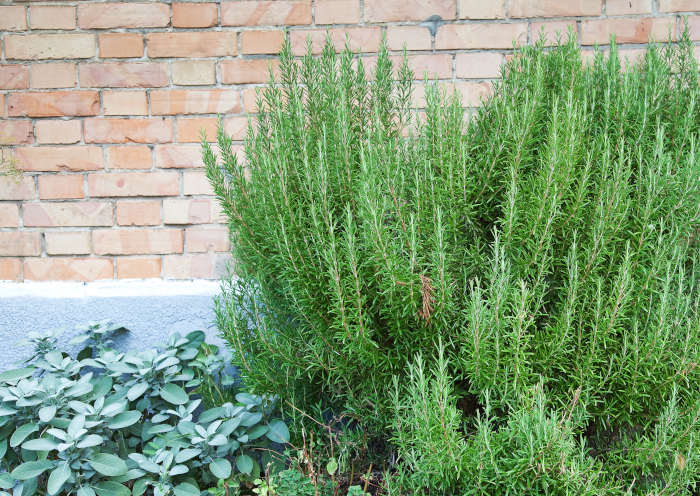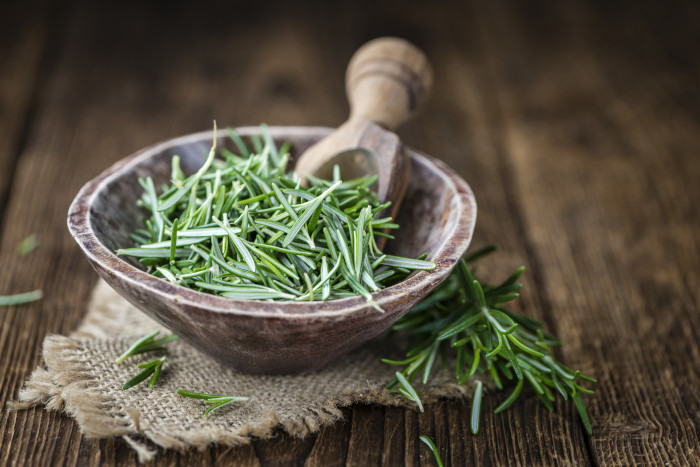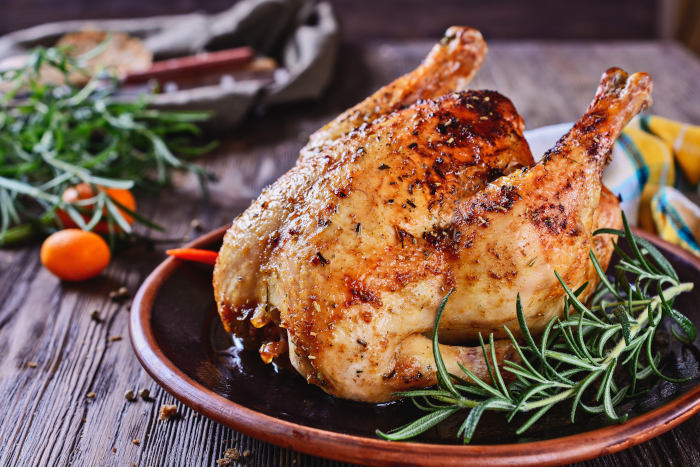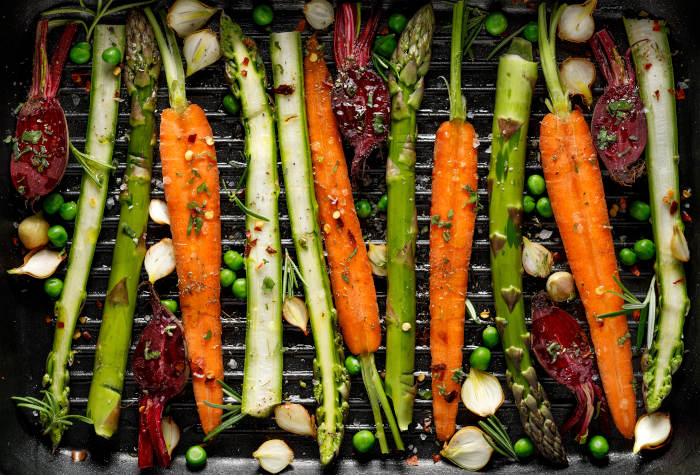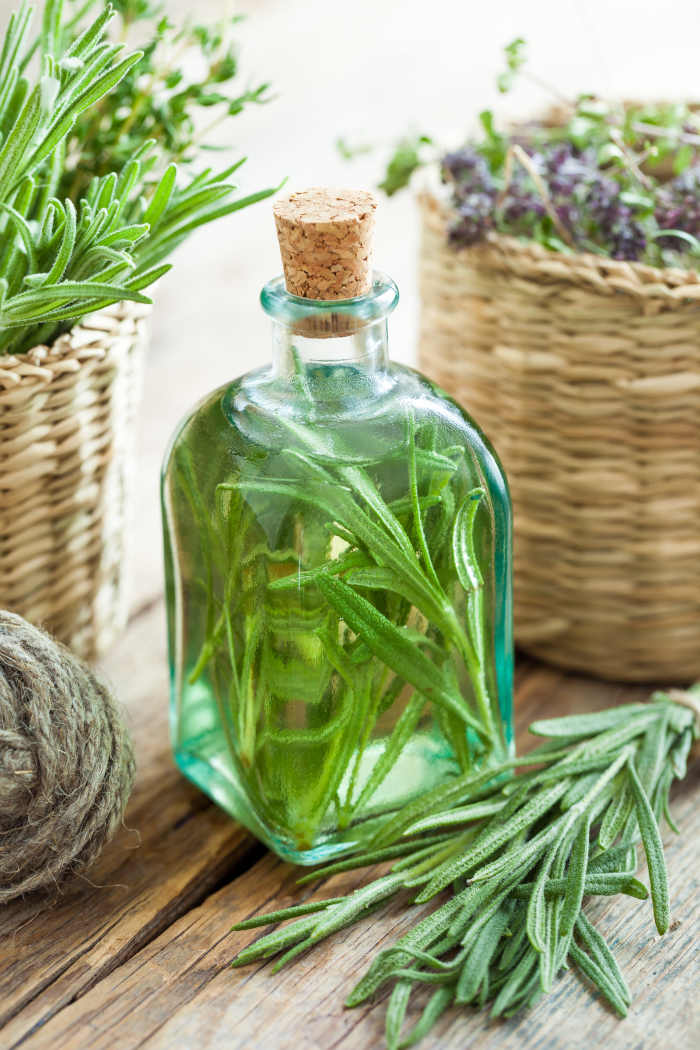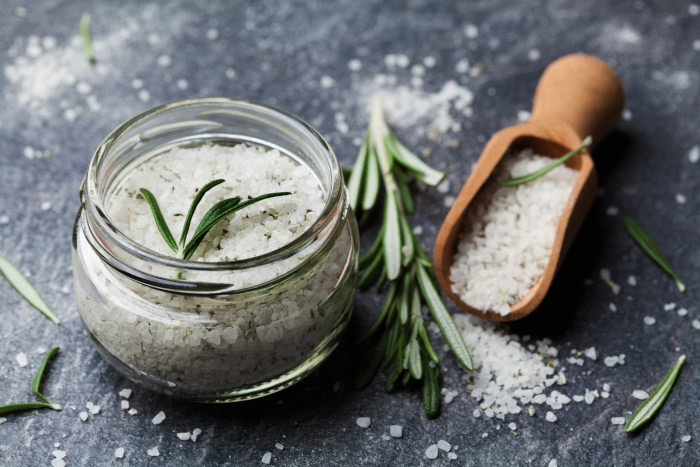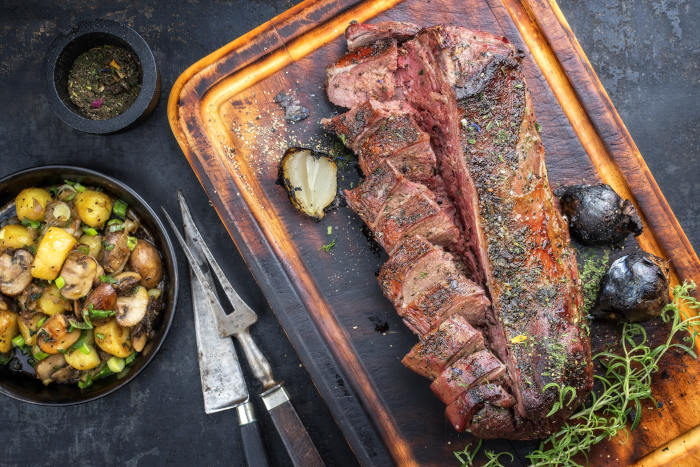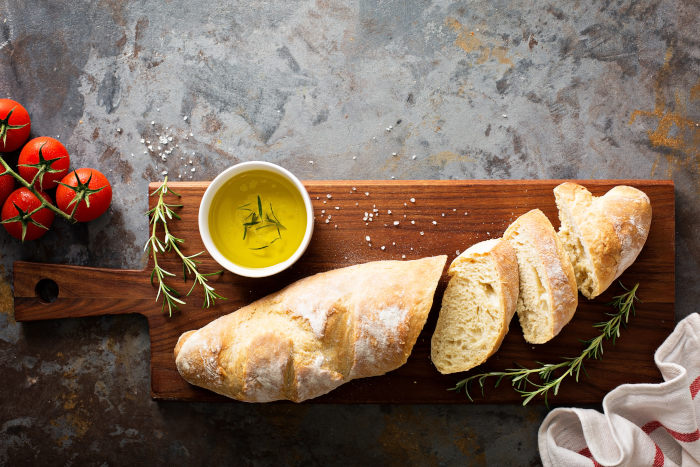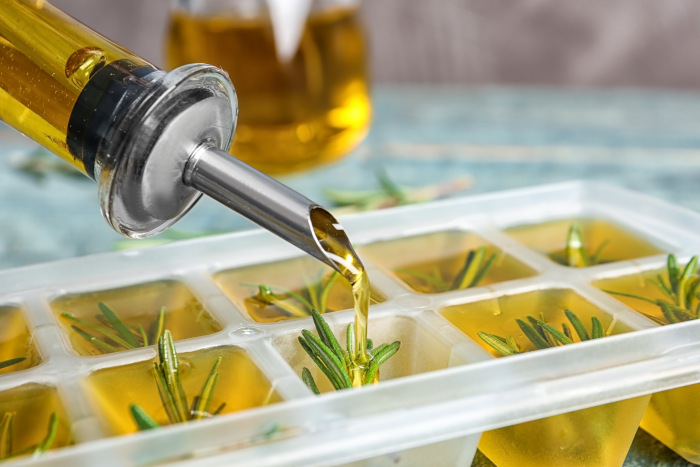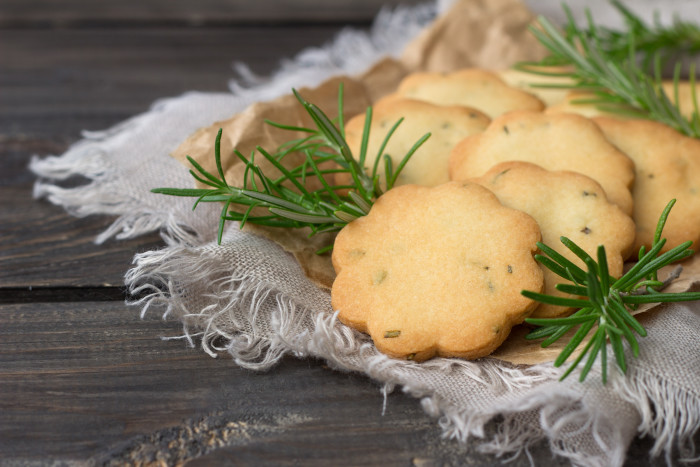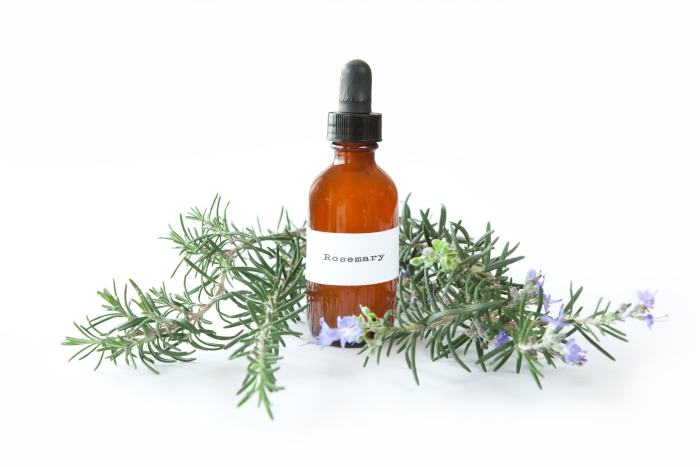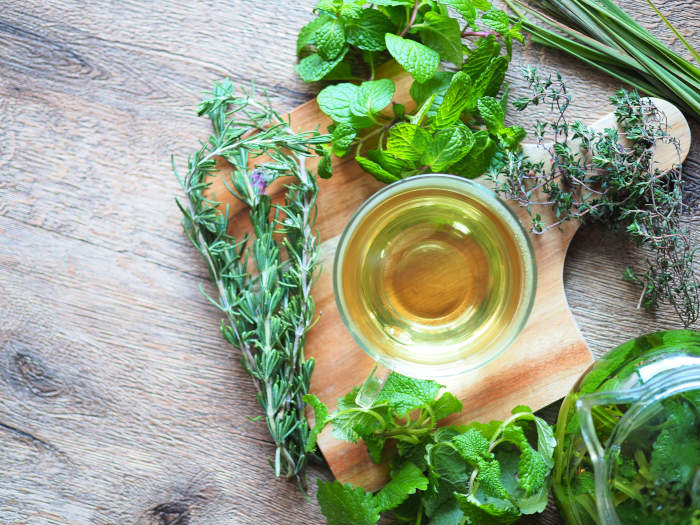Get weekly tips, recipes, and my Herbal Jumpstart e-course! Sign up for free today.

Rosemary Benefits
Share this! |
|
|
Do you have a super herb in your spice cabinet and not know it? |
Is rosemary eligible for super herb status? I think so! It is one of the most diverse and practical herbs you can have in your garden, kitchen, and apothecary. Rosemary benefits have a long history of culinary use, have been studied extensively for their medicinal applications, and rosemary is one of the easiest herbs to grow.
Rosemary Benefits in the Garden
Rosemary is an evergreen perennial so it offers our landscapes year-round beauty. The rosemary shrub has an incredible diversity of growth habits: dwarf, medium, and tall with compact, open or spiraling habits of growth. Prostrate forms can be used in a hanging basket or cascading over fences and stone walls.
Native to the southern Mediterranean, it’s a resilient genus: it can handle stifling heat, drought, harsh winds, salt air, and droughts but what it can’t handle is cold winter weather below 10° F. Those of us in USDA Zones 7 and below grow our rosemary plants in pots that we lug inside when the snow flies.
Rosemary Benefits in the Kitchen
For many of us, the kitchen is where we first met rosemary. Rosemary’s antibacterial properties were once used to preserve food before refrigeration, and rosemary extracts are often used in modern body care products to help with preservation. Traditionally, rosemary is used with fatty foods like meats and cheeses. It is also a well-known soup herb. The foliage on rosemary is needle-like and a bit tough so often a fresh sprig or two is added to the soup and then retrieved before serving.
Rosemary Benefits in the Apothecary
Like many of our European native herbs, rosemary was used medicinally before it was brought into the kitchen. Rosemary and its essential oil have been studied for an array of medicinal uses: antibacterial, neuroprotective, liver protective, anti-inflammatory, antioxidant, muscle and joint pain relief, cancer cell suppression, cognitive and memory enhancement, blood sugar management, mental health (increased alertness, reduced anxiety, mood enhancer), gut health, cardio-vascular improvement, hair loss reversal and dermatitis.
And, remarkably, it helps with mathematical problem-solving!1
Historically associated with memory, Ancient Greek scholars often wore a garland of rosemary on their heads to help with their memory and concentration during examinations. Research supports the use of rosemary’s volatile oils to enhance brain wave activities, including mood improvement and brain stimulation.2 Our modern work environments demand much from our brains, including multi-tasking, long hours on computers and jumping from task to task. It should not surprise anyone that, by late afternoon, many people experience a kind of brain fog: concentration and alertness are diminished. Drinking rosemary water or tea could be the ideal pick-me-up.3
Medicinally, as an aromatic and restorative herb, rosemary’s warming, drying, and dispersive properties offer support to the digestive, cardiovascular and nervous systems. Rosemary stimulates the liver and gallbladder, making it an important herb for people with slow and sluggish digestion. Considered a circulatory stimulant and nervine, herbalist Matthew Wood recommends it for nerve stimulation and opening capillaries.4
While doing research on strategies for healthy aging, I discovered that several members of the mint family (Lamiaceae), most of which are common culinary herbs, contain compounds that inhibit acetylcholinesterase (AChE). Increased activity of AChE leads to reduced levels of neurotransmitter activities and is known to be a contributing factor to Alzheimers.5
CAUTION: Used as a culinary seasoning, rosemary is safe for everyone. Medicinal doses of rosemary should not be used during pregnancy and may interact with certain pharmaceutical drugs. Do not ingest rosemary essential oil as it can cause seizures and be toxic to the liver and heart.
15 Ways to Enjoy Rosemary Benefits Every Day
1. Plant rosemary throughout your vegetable garden to help repel problem insects and attract pollinators.
2. Practice the art of topiary using an upright growing cultivar of rosemary.
3. In USDA Zones 8 and above, petition your community governments and
private businesses to landscape sidewalk areas with low-maintenance,
drought-resistant and bee-attracting rosemary. In downtown Phoenix,
sidewalks are lined with three-foot-high rosemary shrubs.
4. Powder small amounts of dried rosemary and add to ghee or olive oil to
saute vegetables like cabbage, cauliflower, and Brussels sprouts,
sprinkle over potatoes in any form and add to bread dough and pizza
crust.
5. When roasting chicken or baking fish, layer the pan with fresh rosemary sprigs and place the meat on top of the sprigs.
6. Add finely chopped fresh rosemary to a sheet pan of roasted root vegetables, both before and after roasting. The more, the “mary-er”!
7. Infuse vinegar by bruising the leaves on a sprig or two and
inserting it into the filled bottle (you can add other herbs and spices
to create a unique flavor). Let it steep for several weeks. Give it as a
gift: Use a fancy bottle and tie a fresh sprig of rosemary.
8. Rosemary salt is delicious and easy to make. Strip fresh rosemary
leaves off their stems to measure two loosely-packed cups. Process in a
food processor or mince by hand until the leaves are in tiny pieces. Add
½ cup of kosher salt or sea salt and process a couple of times to mix -
do not overprocess. Pour onto a large baking sheet to form a single
layer and allow to dry for a few days. You can add other herbs like
sage, savory or thyme to make it a unique blend. An ideal gift for anyone who enjoys eating! (This could also be used to make rosemary sugar.)
9. Meat eaters may recall that several decades ago scientists
discovered that any meat that is grilled, fried, broiled or smoked at
temperatures above 350°F begins to produce toxic chemicals called
heterocyclic amines (HCAs) that are linked to an increased risk of
various cancers. Research shows that several key antioxidants
(rosmarinic acid, carnosic acid, and carnosol) found in rosemary can
dramatically inhibit HCA development when cooking meat at high
temperatures.6 See my marinade recipe below.
10. Steep several fresh sprigs of rosemary in dry white wine to create a
unique and traditional drink. Or use as a marinade, base for a sauce,
or add to a salad dressing.
11. Puree fresh rosemary leaves with a bit of salt and enough olive oil
to make a slurry and use it as a dipping sauce for bread or cheese
cubes.
12. To preserve for year-round use, finely chop fresh rosemary, place in
ice-cube trays and fill with water or olive oil and freeze. Use the
cubes for any recipes asking for fresh rosemary or for tea.
13. Simplify your holiday baking traditions: make a variety
of herbal shortbreads. Mince fresh rosemary and add to your favorite
shortbread cookie recipe. I often double the amount of herb called for
because I want to taste the herb. You could sprinkle these cookies with
some rosemary salt or make some rosemary sugar to top them.
14. If interested in medicinal dosages to support digestion and brain
health, make a quart of fresh rosemary tincture. Take ½ tsp. 3 times a
day.
15. Drink rosemary tea every day to support the health of your digestive system and brain.
Rosemary Benefits: Brain Tonic Tea Recipe
Rosemary and lemon balm can keep your brain young and can improve memory and cognition.
For a two-cup pot of tea:
- 2 tablespoons dried rosemary
- 2 tablespoons dried lemon balm
- 1 tablespoon fennel seeds
Place herbs in teapot, pour 2 cups of just-boiled water over the herbs and cover. Steep for 10 minutes.
Rosemary Benefits: Rosemary Garlic Rub and Marinade
Adding rosemary to your grilled meats is easy and delicious!
Mix the following herbs in a small bowl:
- 1 tablespoon sea salt
- 1 tablespoon coarsely ground black pepper
- 1 tablespoon dried garlic granules
- 2 tablespoons dried rosemary powder
- 1 tablespoon dried thyme
Add enough olive oil to make a paste and rub onto meats before grilling or frying.
To use as a marinade for meat: add ¼ cup red wine vinegar and ½ cup olive oil to rub mixture. Pour into a shallow pan with a cover and place meat into the pan, turning over several times to coat. Cover with lid, and store in the refrigerator for several hours. Bring to room temperature before cooking.
Rosemary Benefits Citations
Click to show/hide.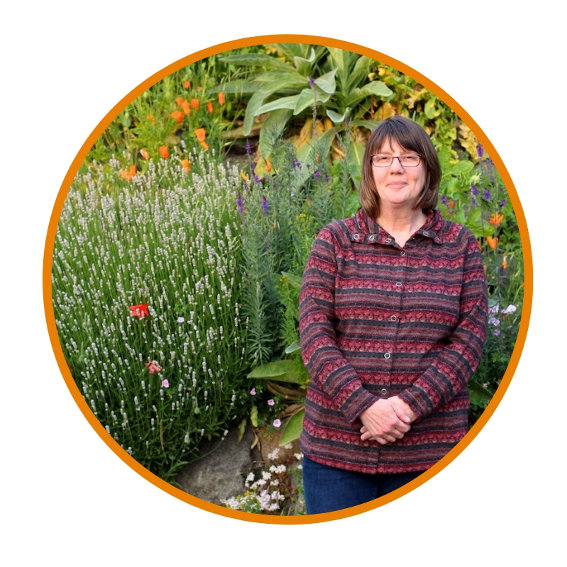
Sue Kusch, a former community college instructor and academic advisor, incorporates her experiential wisdom, expertise and science-based research garnered from her three decades of growing vegetables, fruit and herbs into her educational writing about plants and how people use them. In addition to her BA in Social Sciences and Masters in Education, she completed the Master Gardener training in 2011 and two permaculture courses in 2001 and 2014. She has studied medicinal and nutritional uses of herbs, including studies at Herbmentor and East West School of Planetary Herbology, since 1997. An avid reader, lover of historical and folkloric information, and a promising storyteller, Sue writes about the intersection of plants and people.
